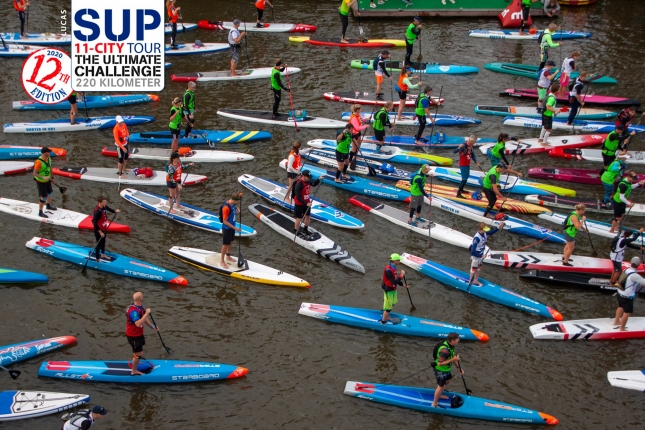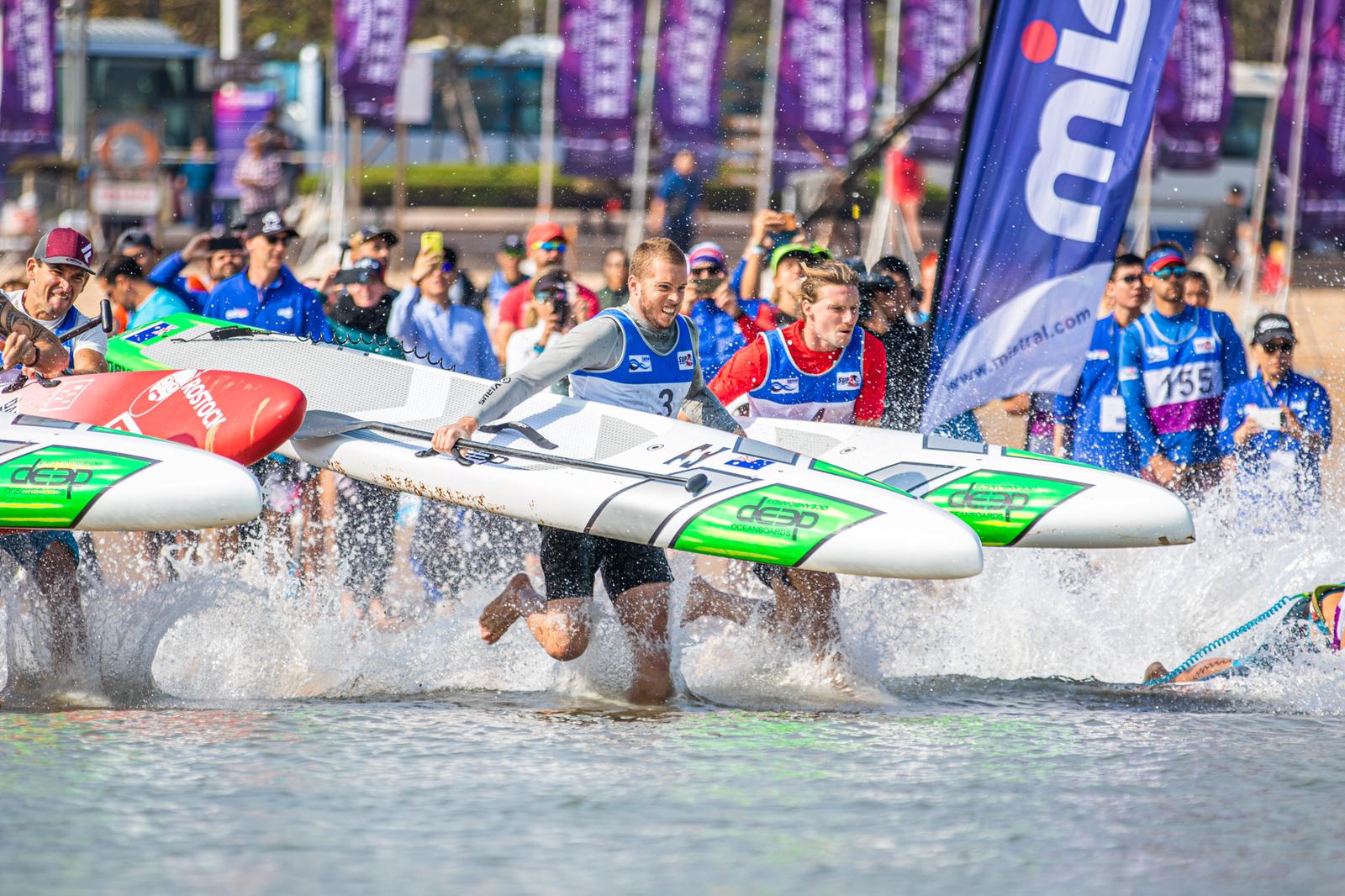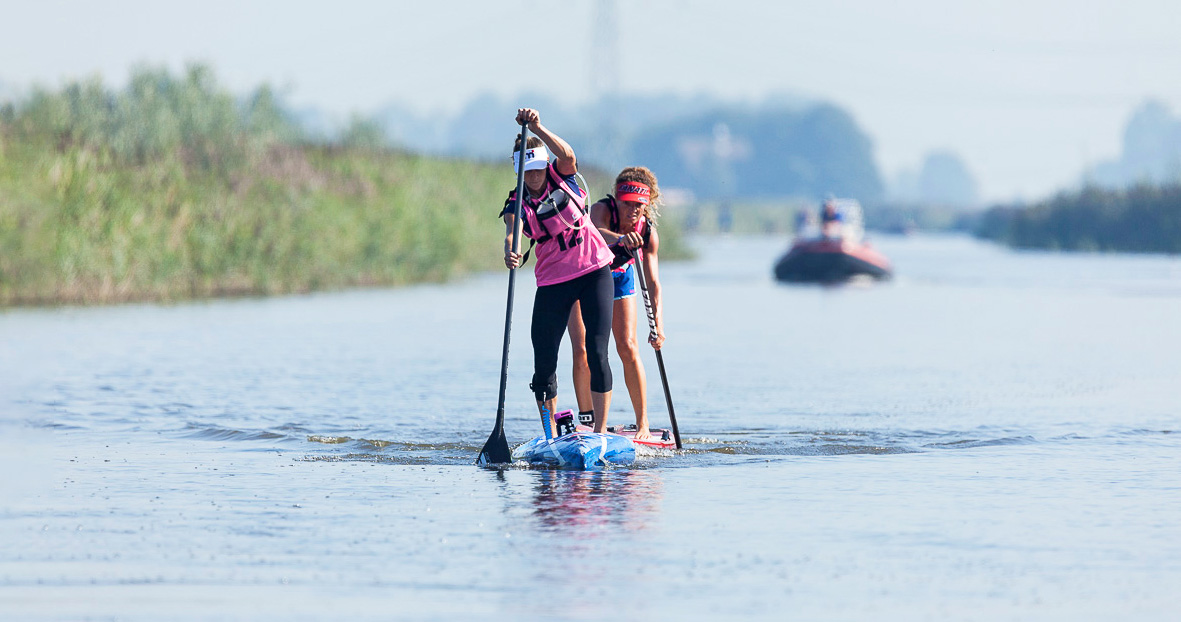
SUPtember Double-Header: ICF set to sanction 11 City Tour in 2022 (potential ‘Ultra World Championship’ in 2023)
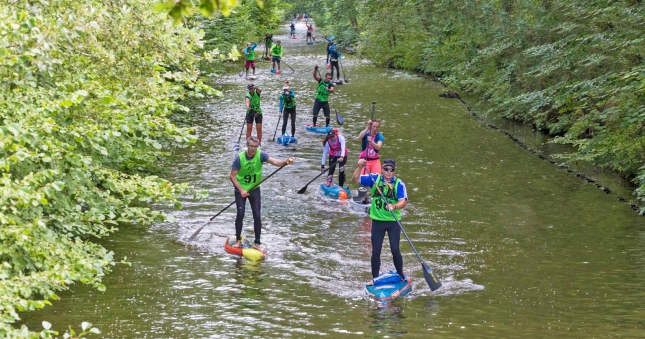
The 11 City Tour is the longest-running race in the world of stand up paddling (photo: Mayola Dijksman)
In news that will excite those with a passion for paddling way too far, the classic SUP11 City Tour is set to become an even grander event in 2022 and beyond. The International Canoe Federation (ICF) and 11 Cities will collaborate to form a big double-header next September (or SUPtember) with the traditional, five-day version of the 11 Cities in the Dutch province of Friesland running back-to-back with the 2022 ICF Worlds in Gdynia, Poland.
The beloved ultra will become an officially sanctioned ICF event in 2022 but the longer-term goal is even more exciting: the potential for 11 Cities to be the ICF “Ultra-Marathon World Championship” event starting in 2023.
SUPtember Double-Header 2022
ICF Worlds (Gdynia): Sept 7-11
11 City Tour (Friesland): Sept 14-18
As part of the agreement, the ICF will transport boards from the beach in Gdynia to the start line in Friesland, which makes the double-header an easy choice for athletes (at least those who get excited by the challenge of a 200km race). Logistically, it’s an easy one-day drive between the Polish port city of Gdynia and the canals of Friesland, and I suspect a lot of paddlers will be taking that route on Monday morning after the Worlds (or you could even fly direct GDN-AMS if you want to skip the German countryside).
The news dropped in today’s broader announcement of an ICF World Cup series that will begin next year, which is a major story in its own right. I’ll take a deeper look at that tomorrow but the basic idea is a three-stop ICF World Cup along with half a dozen regional ICF ranking events. World Cup winners gets all-expenses ticket to Gdynia while the rankings will be used to seed heats at the overcrowded Worlds.
The 11 Cities won’t be a standard ICF ranking event as the format is so far beyond that of a standard race–the clear goal here is the eventual creation of an ultra-marathon world championship in 2023 that awards a world title to the men’s and women’s winners (it depends on how it all goes next September; 2022 is a test-run to see if the collaboration works smoothly).
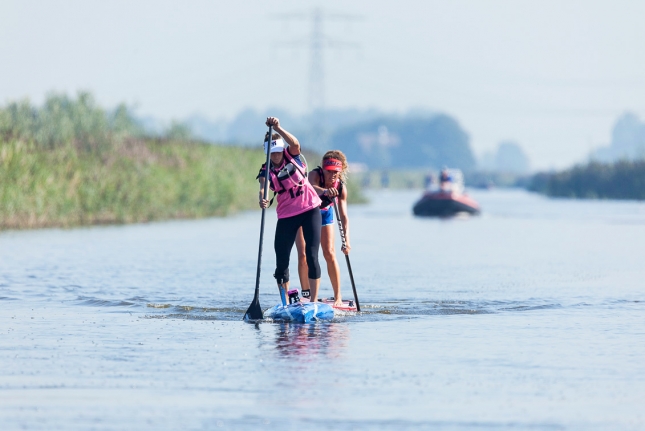
Seychelle and Petronella fighting it out a few years back (photo: Mayola Dijksman)
I’ve waxed lyrical about this sport having too many world titles so I accept the irony of me pushing for yet another one. But the ultras have become a legitimate part of our sport and the men and women who focus their seasons around events like the 11 Cities deserve as much credit as the sprint, course and distance race heroes. If we’re going to have multiple world titles being handed out then surely the Barts, Brunos and Seychelles of the world that dominate these ultra-endurance distances deserve one too. It’s just a title but it’s one that means a lot to athletes, sponsors and the wider media world.
Going deeper, this new sanctioning agreement with the ICF could be the beginning of a new era for the 11 Cities as we look to create the “Tour de France on water” concept that I shared recently. That’s something that really excites me and I think it could do wonders for expanding the reach of our sport.
This is also complimentary to the work we’re doing on the Ultra Paddle League (of which 11 Cities is a central figure). The goal of the Ultra Paddle League is to build a platform that can unify and highlight the longest races, biggest adventures and grandest stories in the world of paddling. We aim to elevate this niche part of the paddling world. The ICF’s collaboration with Friesland makes the ultras a little more legitimate, and I think that can only help grow this niche in general.
We actually started talking about an ICF/11 Cities collaboration a few weeks ago just as a way to avoid date clashes (the ICF infamously held their 2021 Worlds the same weekend as the 11 Cities). But the conversation grew on the back of the ICF wanting to be more proactive and start associating with major events beyond their own World Championships. This deal will now see the canoe boys covering quite literally the entire length of the sport in the span of just 12 days with four major races between 200 metres and 200 kilometres (sprints, course race and long distance in Gdynia; ultra-marathon in Friesland).
For the 11 Cities, an already-popular event, it’s a great chance to piggyback on Poland and lure more top talent to compliment the huge field of amateur starters and help make the whole Tour de France idea a reality. And for all paddlers, this is an awesome double-header with easy logistics and board transport. Win-win-win.
(While the Worlds in Poland will still clash with the non-stop version of the 11 Cities on September 10-11 that’s a smaller event for the hardcore ultra fanatics; most paddlers that would want to do both ICF and 11 Cities are doing the five-day version.)
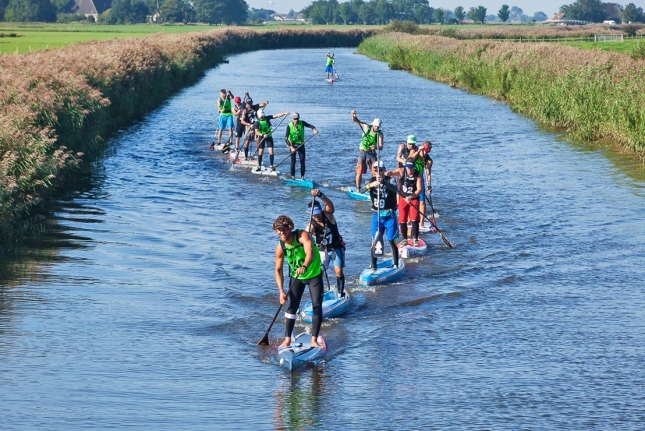
The endless canals of Friesland… (photo: Mayola Dijksman)
The 11 City Tour (or “Elfstedentocht” in the local lingo) has been seducing and terrorising paddlers every year since Dutchwoman Anne-Marie Reichmann ran it in 2009 as an invitational (a very young Connor Baxter was on the start line; he still has PTSD). It’s grown to become a massive grassroots event and officially the longest-running race in the world. The 11 Cities pioneered the ultra-marathon format in our sport.
The iconic stage race in the countryside of Friesland (11 “villages” would be a more apt description), which will celebrate its 14th annual edition next year, is something of a mecca for stand up paddlers; a pilgrimage that I believe we all need to make at least once in our paddling lives.
It’s gruelling, epic, emotional. It’s mad, crazy, beautiful. It’s an incredible test for the body and mind. And it’s so much more than just a race–Friesland puts on one of the most festive atmospheres you’ll ever experience in paddling. It’s school camp for adults. It’s not all about first or last it’s mainly just about finishing; everyone that crosses the line receives the famous “Elfsteden” cross around their neck. So the sanctioning by the ICF won’t change the event itself but it will add a new chapter to what is an already engrossing story.
See you in Suptember.



